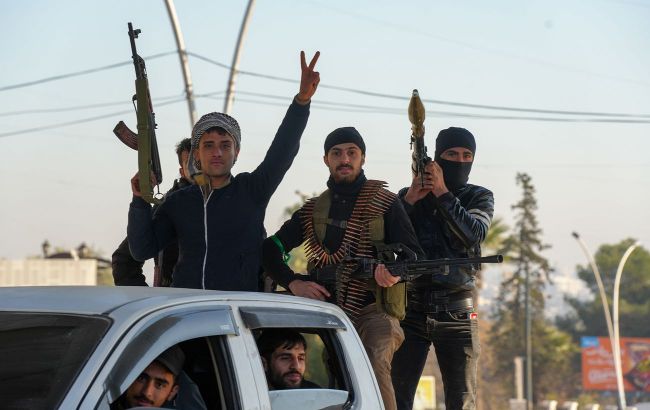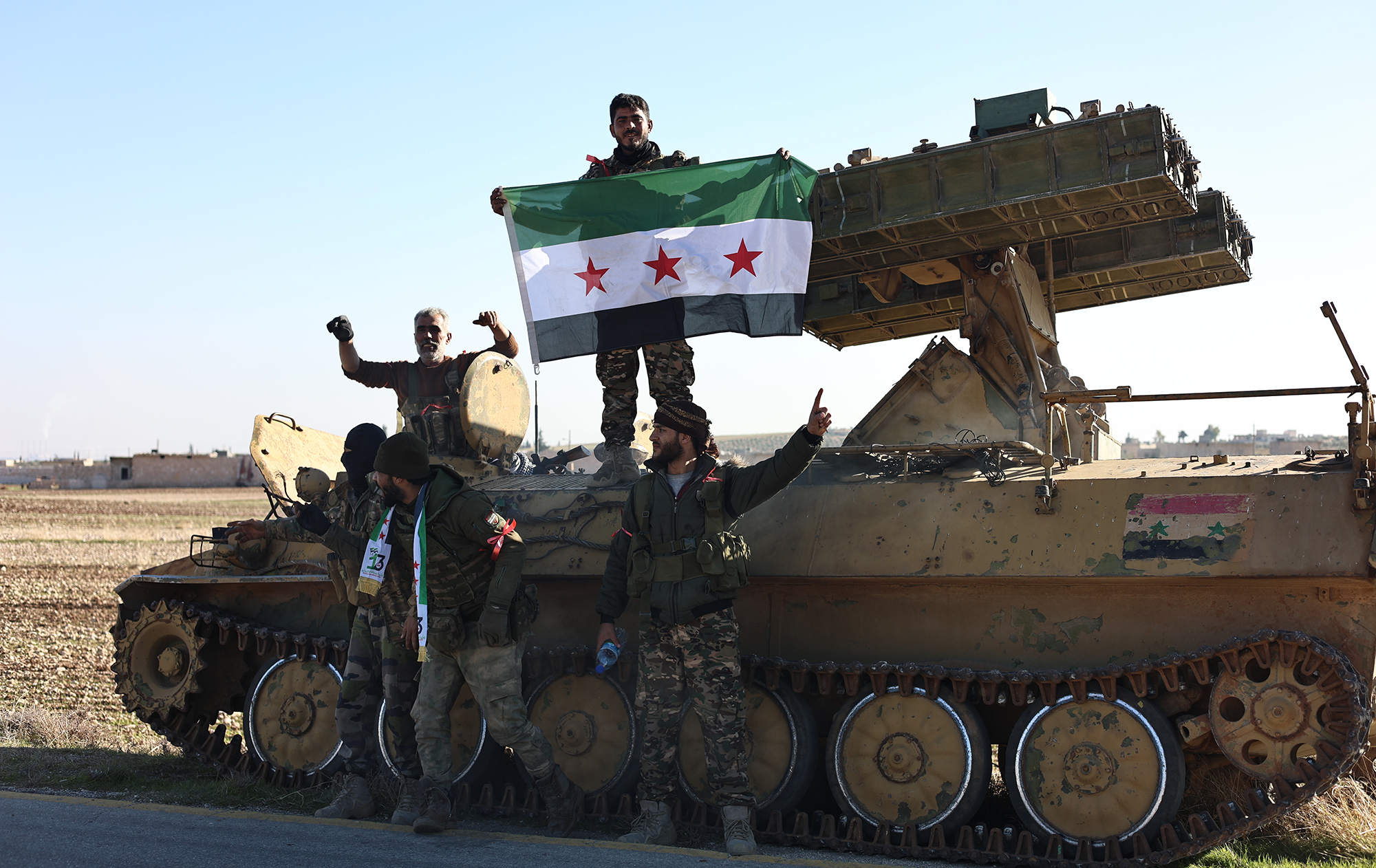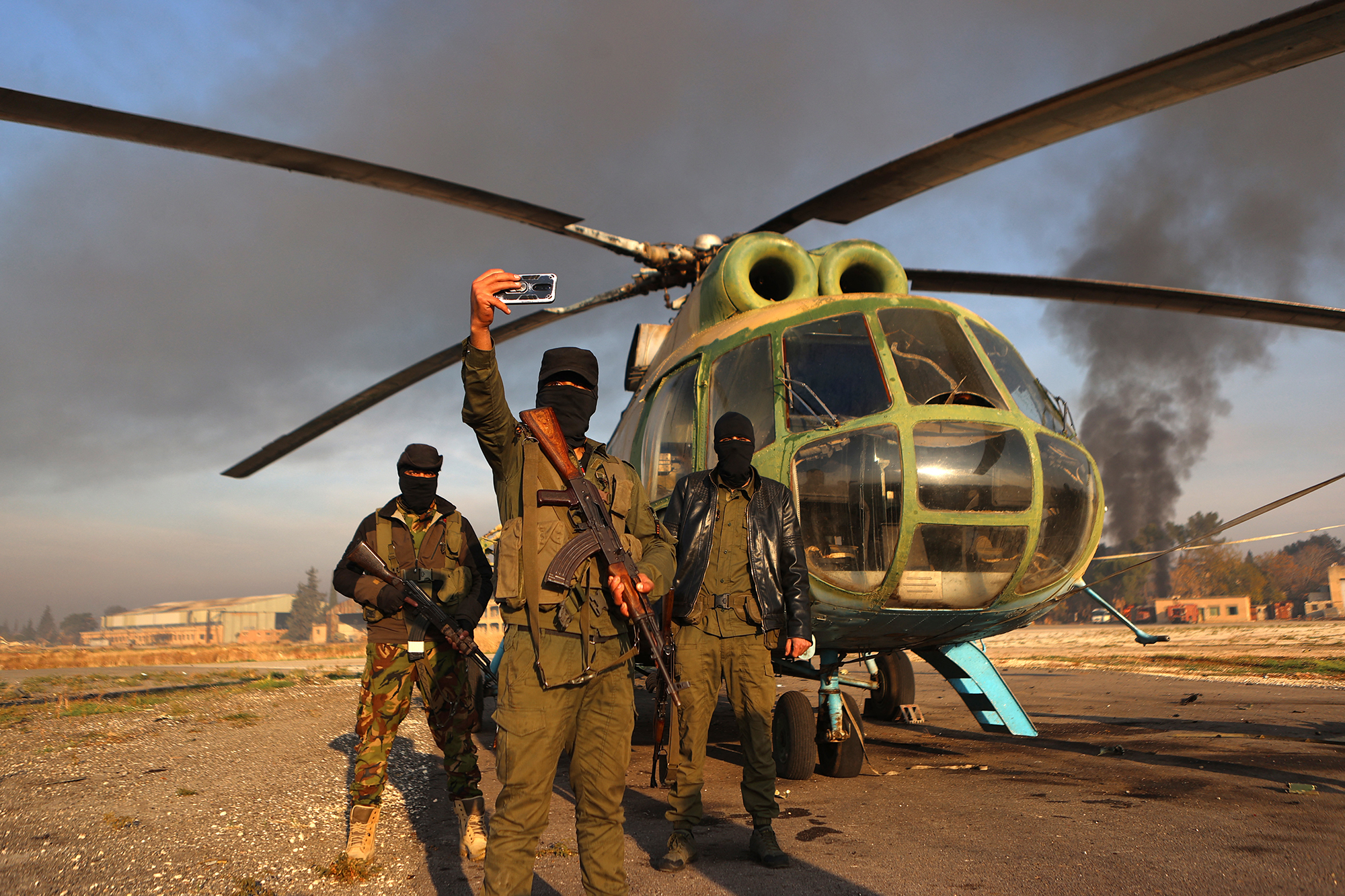Flames rekindled: Why Syrian war erupted again and will Assad regime fall?
 Islamist fighters in captured Aleppo (photo: Getty Images)
Islamist fighters in captured Aleppo (photo: Getty Images)
What’s happening in Syria these days, who can count themselves among the winners and losers of the renewed civil war in the country, and what this means for Ukraine – read in the RBC-Ukraine's material below.
Contents
Speculations about the onset of a Third World War, popular in recent months, may not be as far-fetched as they seem. Indeed, armed conflicts in different parts of the world are now more interconnected than ever. Unlike the first two world wars, where two global alliances with clearly defined participants clashed, today, we are dealing with many individual players with overlapping interests. This is most evident in Syria, where an ally's ally can often turn out to be their fiercest enemy.
What’s happening in Syria
The war in Syria has long receded from global attention. This is not surprising – since 2020, the conflict has been essentially frozen, with no significant clashes observed.
The extent to which the situation has suddenly thawed in recent days can serve as a lesson for Ukrainians – demonstrating what happens when key issues, particularly territorial ones, remain unresolved at the end of a war. It takes only favorable external conditions for everything to flare up again.
By mid-last week, such conditions had formed in Syria. The regime of Bashar al-Assad, which managed to survive the civil war and until last Wednesday controlled approximately two-thirds of Syrian territory, relied primarily on support from Russia and Iran.
Since 2022, Russia has been entirely focused on its aggression against Ukraine, transferring part of its Syrian resources there. Over the past year, Iran has concentrated on its confrontation with Israel – both directly, through mutual strikes and indirectly, via its proxies, Hamas and particularly Hezbollah.
As is known, last Tuesday, November 26, a ceasefire came into effect between Israel and Hezbollah, freeing up some forces of the terrorist group and giving it time to recover from heavy losses. Without waiting for that to happen, the very next day, November 27, a coalition of Islamist rebels led by Hayat Tahrir al-Sham (HTS) launched a sudden offensive on Assad’s army positions.
HTS originated as a branch of ISIS, later reoriented toward al-Qaeda, and subsequently severed ties with it, striving to position itself as a relatively civilized force (at least compared to many other local Islamist groups).
HTS is considered a relatively autonomous force, although at least loyal to Türkiye – at one time, only Turkish intervention saved the Islamist rebels from complete defeat by Assad’s army and allowed them to retain control over a small province of Idlib in northwestern Syria.

Islamist fighters near Aleppo (photo: Getty Images)
HTS’s offensive developed rapidly, and within just a couple of days, they gained control over Aleppo, the country’s largest city with over a million residents. Assad’s forces, entirely unprepared for defense, abandoned their positions along with stockpiles and equipment (much of it Russian-made).
The Islamists began advancing quickly toward the country’s capital, Damascus, and it seemed that more than half a century of Assad family rule in Syria would end in mere days. However, Iran urgently deployed its forces to support Assad, Russian aviation struck HTS positions, and the government army recovered from its shock, halting the Islamist advance on Damascus and even carrying out a minor counteroffensive. The front line will begin to stabilize in the near future.
Simultaneously, the Kurdish-led Syrian Democratic Army launched its offensive against Assad’s positions. Their main competitor was another group – the Syrian National Army, which Türkiye entirely controls. Active clashes erupted between the two factions fighting against Assad.
The position of Syrian Kurds illustrates the overall complexity of the situation in the country. On one hand, the Kurds oppose Assad’s regime, striving for independence (and effectively establishing an independent state in the northeastern part of the country). On the other hand, their fiercest enemy is Türkiye, which seeks to eliminate any signs of Kurdish statehood, fearing Kurdish separatism within its borders.
During Turkish operations in Syria, the Kurds have repeatedly found themselves fighting alongside Assad’s forces. However, Türkiye is also unlikely to pursue the destruction of the Kurdish enclave in Syria. First, the Kurdish army is highly experienced and battle-hardened, making it difficult to defeat. Second, such actions would not sit well with the Kurds’ only significant ally in the world – the United States, which continues to support them, albeit less actively than a decade ago. Thus, stabilization is expected on this front in the foreseeable future.
Therefore, the ongoing events will not resolve the Syrian conflict that has been raging since 2011. However, they will undoubtedly shift the balance of power.
Who won and who lost
The most obvious loser, of course, is Bashar al-Assad, who has lost control over the most significant (or second-largest) city in the country. His position in a peace settlement, should it ever happen, now looks significantly weaker. His army has again lost face and a considerable part of its weaponry.
Iran has also undoubtedly lost, as Syria is a crucial element of its local "axis of evil." Through Iraq and then Syria lie the supply routes for weapons to the militants of the Iran-backed Hezbollah, Tehran's main tool in its confrontation with Israel.
Russia has also suffered reputational losses, as it has once again proven unable to protect the interests of its ally swiftly. On the other hand, despite numerous rumors, Assad's regime has not collapsed. Reports of a coup have not been confirmed. Now, the Syrian dictator is again forced to plead for Moscow's help. However, the extent of that help will undoubtedly be smaller than a decade ago. If Russia is scraping together every possible resource to send to Ukraine, it cannot afford much generosity for its Middle Eastern ally.
The clear winner appears to be Türkiye, which has significantly strengthened its position in the region (mostly through others' efforts) and can once again claim a leading role in Syrian affairs.
Israel has likely gained some advantages from this situation, as its arch-enemy, Iran, now has a new source of headaches, forcing Tehran to divert resources intended for operations against Israel to support Assad's regime.
However, things are never straightforward in the Middle East. According to Reuters, even before the Islamist offensive, the U.S. and the United Arab Emirates were discussing the possibility of lifting sanctions on Assad if he distanced himself from Iran and cut off supply routes for Iranian weapons to Hezbollah—a development that would be a tremendous success for Israel. But now, a weakened Assad is unlikely to take such a step.

An Assad army helicopter captured by Islamists (photo: Getty Images)
Interestingly, despite Assad's regime being Israel's fiercest enemy, his complete collapse would not necessarily benefit Jerusalem. The vacuum created in the Middle East could very well be filled by Islamist groups of varying degrees of radicalism, for whom Israel is the number one existential enemy.
For Türkiye, Assad's fall could be disadvantageous for another reason—it might sharply worsen relations with Iran and Russia, something Ankara clearly does not want. Even for Ukraine, which has every reason to rejoice at the defeat of Russia's ally and the footage of burnt Russian equipment in the desert, the total defeat of Assad may not be the best outcome. Currently, Russia is forced to maintain limited forces in the region. If it is pushed out entirely, the remaining Russian aircraft may soon stop bombing Idlib and start bombing Kharkiv instead.
Israeli military analyst David Sharp detailed all these complexities in an interview with RBC-Ukraine.
The uplifted morale, especially noticeable in Ukrainian social media in connection with events in Syria, is understandable—Russian defeats and those of their allies cannot evoke any other emotions. However, such events in other parts of the world will not lead to the collapse of the aggressor state. The Third World War, which began in this hybrid format in Ukraine, is likely to end in Ukraine as well.
Sources: Articles by Reuters, Al Jazeera, Ahram Online, CNN, and comments by Israeli military analyst David Sharp.

